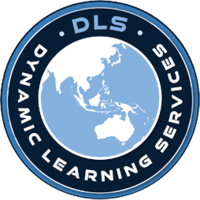
How do I become a Food Technologist in Tasmania?
Get qualified to work as a Food Technologist with a course recognised across Australia. Speak to a training provider to learn more.
Course providers in Tasmania
The following providers offer Food Technologist courses in Tasmania.






Common questions
In Australia, a full time Food Technologist generally earns $1,490 per week ($77,480 annual salary) before tax. This is a median figure for full-time employees and should be considered a guide only. As you gain more experience you can expect a potentially higher salary than people who are new to the industry.
 Courses.com.au Team
Courses.com.au Team
The number of people working in this industry has remained stable in recent years. There are currently 1,200 people employed in as a Food Technologist in Australia, compared to the same number five years ago. Food Technologists may find work in all regions of Australia.
Source: Australian Government Labour Market Insights
 Courses.com.au Team
Courses.com.au Team
If you’re planning a career as a Food Technologist, consider enrolling in a Diploma of Food Science and Technology. This course will give you the skills to examine the biochemical properties of food and test the quality and safety of food products. You may be able to specialise in a range of food sectors including cheese, chocolate, milk, gums and jellies, poultry, fish and seafood, fats and oils, and confectionery.
 Courses.com.au Team
Courses.com.au Team
Related career opportunities
Browse occupations related to Food Technologist
Further reading


A Beginner's Guide to Laboratory Technician Training in Australia
7th February 2025
Choosing a security licence course in Australia: A step-by-step guide for jobseekers
10th November 2023All food technologist courses
- MSL40122 Certificate IV in Laboratory Techniques
- Graduate Certificate in Food Science
- FBPRBK4001 Produce Artisan Bread Products
- FBP40321 Certificate IV in Food Processing
- Bachelor of Science (Honours) (Food Science)
- Bachelor of Science (Food Science)
- FBP40421 Certificate IV in Food Science and Technology
Food Technologist careers
For those seeking to embark on a rewarding career in the food industry, Food Technologist courses in Tasmania offer an excellent pathway. These courses are designed to equip students with the necessary skills and knowledge in food safety, quality assurance, and product development. Tasmania boasts a diverse food landscape, making it an ideal location for aspiring food technologists to gain insights and practical experience. By enrolling in one of these courses, you can gain a competitive edge in the manufacturing and food processing sectors.
The field of food technology closely intersects with various disciplines, including manufacturing courses and science courses. These studies provide a solid foundation for understanding the science behind food processing and preservation, both essential for success as a food technologist. Understanding the principles of food science is crucial, which is why courses focused on food processing and food science are particularly beneficial. These programmes will teach you the necessary methodologies to ensure food safety and quality, which are paramount in Tasmania’s vibrant food industry.
In Tasmania, the food industry remains a significant contributor to the economy, creating numerous opportunities for trained professionals. By completing a Food Technologist course, you will position yourself within a rapidly growing field, gaining access to various career paths including product development, quality control, and regulatory affairs. Understanding local preferences and sustainable practices in Tasmania can also enhance your ability to innovate within the field, making your skillset more attractive to potential employers.
Enrolling in suitable training providers that offer recognised Food Technologist courses in Tasmania ensures you receive top-notch education and training. The skills acquired through these courses are essential not only for personal development but also for contributing to the local food industry’s reputation for excellence. As you explore the options available, consider how these professional qualifications can shape your career and play a role in Tasmania's agricultural heritage.
